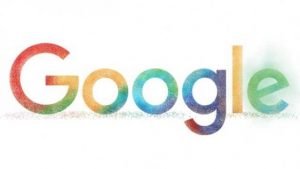At the point when Google purchased the promoting system DoubleClick in 2007, Google originator Sergey Brin said that protection would be the organization’s “number one need when we mull over new sorts of publicizing items.”
What’s more, for about 10 years, Google did in certainty keep DoubleClick’s huge database of web-perusing records isolate as a matter of course from the names and other by and by identifiable data Google has gathered from Gmail and its other login accounts.
In any case, this year, Google discreetly deleted that last security line in the sand — actually crossing out the lines in its protection arrangement that guaranteed to keep the two pots of information separate as a matter of course. In its place, Google substituted new dialect that says perusing propensities “might be” consolidated with what the organization gains from the utilization Gmail and different instruments.
The change is empowered of course for new Google accounts. Existing clients were incited to pick into the change prior this year.
The reasonable consequence of the change is that the DoubleClick promotions that chase after you on the web may now be redone to you in view of your name and other data Google thinks about you. It likewise implies that Google could now, in the event that it wished to, assemble an entire representation of a client by name, in light of all that they write in email, each site they visit and the hunts they direct.
The move is an ocean change for Google and a further hit to the online advertisement industry’s longstanding conflict that web following is generally mysterious. As of late, Facebook, disconnected information merchants and others have progressively tried to join their troves of web following information with individuals’ genuine names. In any case, until this late spring, Google held the line.
“The way that DoubleClick information wasn’t as a rule frequently associated with by and by identifiable data was a truly huge last stand,” said Paul Ohm, personnel executive of the Center on Privacy and Technology at Georgetown Law.
“It was an outskirt divider between being observed all around and keeping up a small similarity of protection,” he said. “That divider has recently fallen.”
Google representative Andrea Faville messaged an announcement portraying Google’s adjustment in security arrangement as an overhaul to conform to the “cell phone upset”
“We overhauled our advertisements framework, and the related client controls, to coordinate the way individuals utilize Google today: crosswise over a wide range of gadgets,” Faville composed. She included that the change “is 100 for every penny discretionary — if clients don’t select into these progressions, their Google experience will stay unaltered.” (Read Google’s whole explanation.)
Existing Google clients were incited to select into the new following prior this year through a demand with titles, for example, “Some new components for your Google account.”
The “new elements” got little investigation at the time. Wired composed that it “gives you more granular control over how promotions function crosswise over gadgets.” In an individual tech segment, the New York Times additionally portrayed the change as “new controls for the sorts of notices you see around the web.”
Interfacing web perusing propensities to actually identifiable data has for some time been questionable.
Protection advocates brought a ruckus up in 1999 when DoubleClick bought an information expedite that amassed individuals’ names, addresses and disconnected interests. The merger could have permitted DoubleClick to join its web perusing data with individuals’ names. After an examination by the US Federal Trade Commission, DoubleClick sold the specialist at a misfortune.
Because of the debate, the early web based promoting industry shaped the Network Advertising Initiative in 2000 to set up moral codes. The business guaranteed to furnish buyers with notice when their information was being gathered, and alternatives to quit.
Most online promotion following remained basically mysterious for quite a while after that. At the point when Google purchased DoubleClick in 2007, for example, the organization’s security arrangement expressed: “DoubleClick’s promotion serving innovation will be focused on construct just with respect to the non-actually identifiable data.”
In 2012, Google changed its protection approach to permit it to share information about clients between various Google administrations —, for example, Gmail and hunt. In any case, it kept information from DoubleClick — whose following innovation is empowered on half of the main 1 million sites — particular.
Yet, the period of person to person communication has introduced another rush of identifiable following, in which administrations, for example, Facebook and Twitter have possessed the capacity to track signed in clients when they shared a thing from another site.
Two years prior, Facebook reported that it would track its clients by name over the web when they visit sites containing Facebook catches, for example, “Share” and “Like” — notwithstanding when clients don’t tap on the catch. (Here’s the way you can quit the focused on advertisements produced by that following).
Disconnected information dealers additionally began to blend their mailing records with online customers. “The marriage of on the web and disconnected is the advertisement focusing of the most recent 10 years on steroids,” said Scott Howe, CEO of dealer firm Acxiom.
To quit Google’s distinguished following, visit the Activity controls on Google’s My Account page, and uncheck the crate alongside “Incorporate Chrome perusing history and movement from sites and applications that utilization Google administrations.” You can likewise erase past action from your record.







